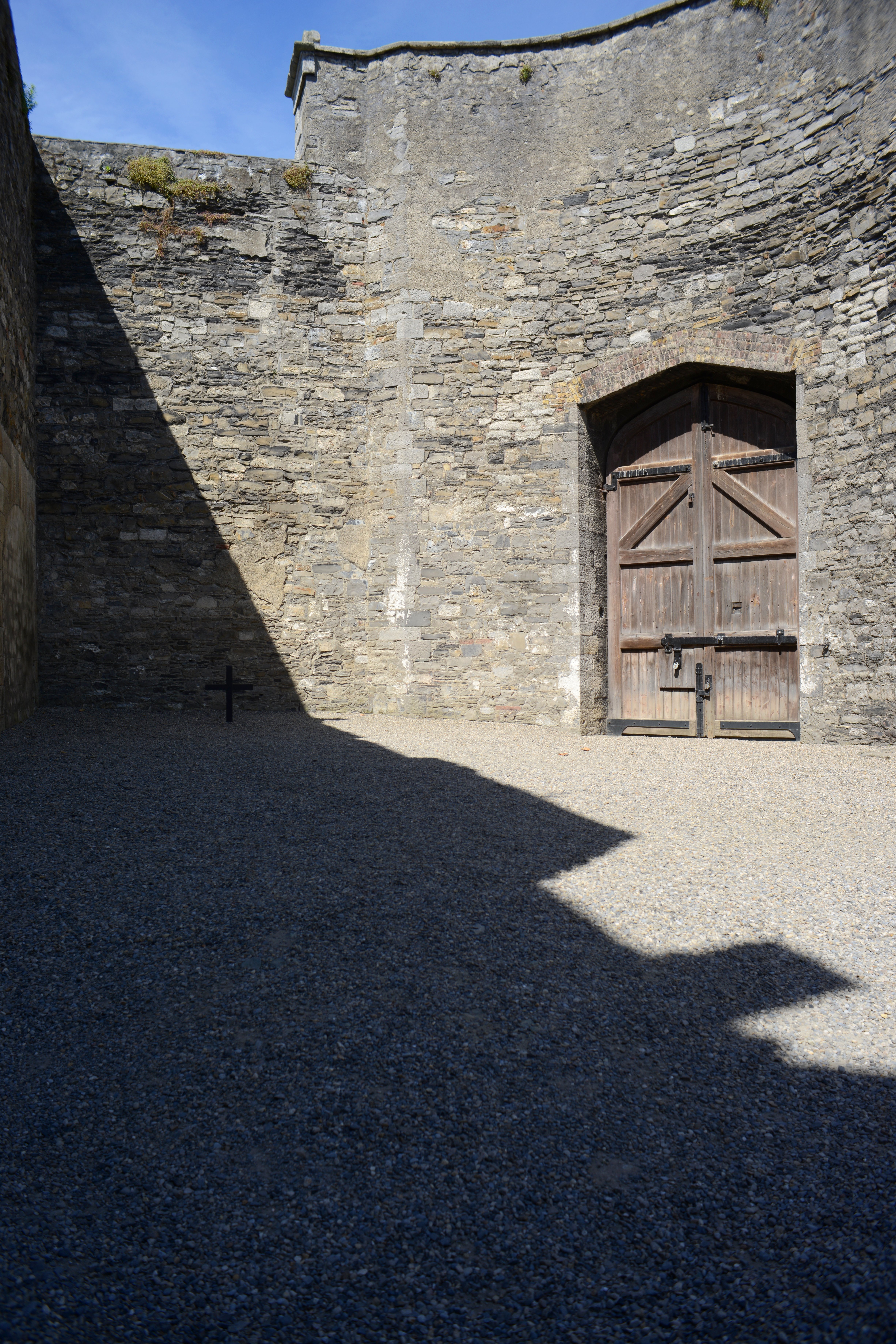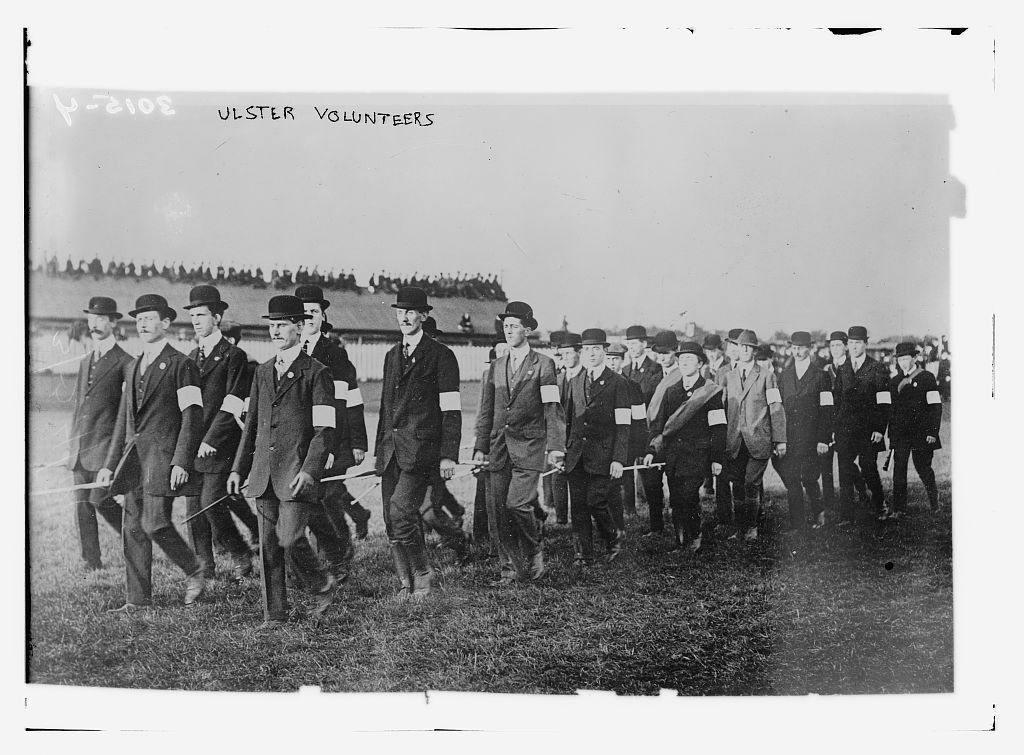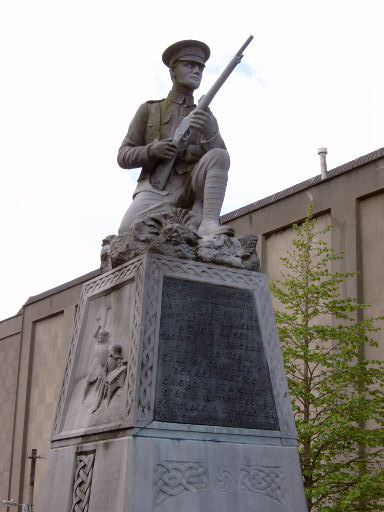|
Tadhg Barry
Tadhg Barry (1880 – 15 November 1921) was a veteran Irish republican, leading trade unionist, journalist, poet, Gaelic Athletic Association official, and alderman on Cork Corporation who was actively involved in, and eventually was killed during, the Irish revolutionary period. Background Tadhg Barry was born in 1880 to a working-class family in Cork, Ireland. He was schooled at the Blarney Street National School and later the North Monastery. After school, Barry worked for four years at Our Lady's Asylum until 1909, when his interest in journalism led to him becoming a staff writer at the newly founded ''Cork Accent''. Between 1910 and 1916, he worked at the ''Cork Free Press'', a paper which competed with the Redmondite (Home Rule advocating) ''Cork Examiner''. Barry had an interest in the Gaelic Athletic Association and reported upon the sports of hurling and camogie under the penname "''An Ciotóg''" (meaning the "left-hander" or "clumsy one"). He was also a delegate to b ... [...More Info...] [...Related Items...] OR: [Wikipedia] [Google] [Baidu] |
Ireland
Ireland ( ; ga, Éire ; Ulster Scots dialect, Ulster-Scots: ) is an island in the Atlantic Ocean, North Atlantic Ocean, in Northwestern Europe, north-western Europe. It is separated from Great Britain to its east by the North Channel (Great Britain and Ireland), North Channel, the Irish Sea, and St George's Channel. Ireland is the List of islands of the British Isles, second-largest island of the British Isles, the List of European islands by area, third-largest in Europe, and the List of islands by area, twentieth-largest on Earth. Geopolitically, Ireland is divided between the Republic of Ireland (officially Names of the Irish state, named Ireland), which covers five-sixths of the island, and Northern Ireland, which is part of the United Kingdom. As of 2022, the Irish population analysis, population of the entire island is just over 7 million, with 5.1 million living in the Republic of Ireland and 1.9 million in Northern Ireland, ranking it the List of European islan ... [...More Info...] [...Related Items...] OR: [Wikipedia] [Google] [Baidu] |
Camogie
Camogie ( ; ga, camógaíocht ) is an Irish stick-and-ball team sport played by women. Camogie is played by 100,000 women in Ireland and worldwide, largely among Irish communities. A variant of the game of hurling (which is played by men only), it is organised by the Dublin-based Camogie Association or An Cumann Camógaíochta. The annual All Ireland Camogie Championship has a record attendance of 33,154,2007 All Ireland final reports iIrish Examiner an while average attendances in recent years are in the region o ... [...More Info...] [...Related Items...] OR: [Wikipedia] [Google] [Baidu] |
Hunger Strike
A hunger strike is a method of non-violent resistance in which participants fast as an act of political protest, or to provoke a feeling of guilt in others, usually with the objective to achieve a specific goal, such as a policy change. Most hunger strikers will take liquids but not solid food. In cases where an entity (usually the state) has or is able to obtain custody of the hunger striker (such as a prisoner), the hunger strike is often terminated by the custodial entity through the use of force-feeding. Early history Fasting was used as a method of protesting injustice in pre-Christian Ireland, where it was known as ''Troscadh'' or ''Cealachan''. Detailed in the contemporary civic codes, it had specific rules by which it could be used. The fast was often carried out on the doorstep of the home of the offender. Scholars speculate that this was due to the high importance the culture placed on hospitality. Allowing a person to die at one's doorstep, for a wrong of which o ... [...More Info...] [...Related Items...] OR: [Wikipedia] [Google] [Baidu] |
Irish Republic
The Irish Republic ( ga, Poblacht na hÉireann or ) was an unrecognised revolutionary state that declared its independence from the United Kingdom in January 1919. The Republic claimed jurisdiction over the whole island of Ireland, but by 1920 its functional control was limited to only 21 of Ireland's 32 counties, and British state forces maintained a presence across much of the north-east, as well as Cork, Dublin and other major towns. The republic was strongest in rural areas, and through its military forces was able to influence the population in urban areas that it did not directly control. Its origins date back to the Easter Rising of 1916, when Irish republicans seized key locations in Dublin and proclaimed an Irish Republic. The rebellion was crushed, but the survivors united under a reformed Sinn Féin party to campaign for a republic. The party won a clear majority of largely uncontested seats in the 1918 general election, and formed the first Dáil (legislature ... [...More Info...] [...Related Items...] OR: [Wikipedia] [Google] [Baidu] |
Dublin
Dublin (; , or ) is the capital and largest city of Republic of Ireland, Ireland. On a bay at the mouth of the River Liffey, it is in the Provinces of Ireland, province of Leinster, bordered on the south by the Dublin Mountains, a part of the Wicklow Mountains range. At the 2016 census of Ireland, 2016 census it had a population of 1,173,179, while the preliminary results of the 2022 census of Ireland, 2022 census recorded that County Dublin as a whole had a population of 1,450,701, and that the population of the Greater Dublin Area was over 2 million, or roughly 40% of the Republic of Ireland's total population. A settlement was established in the area by the Gaels during or before the 7th century, followed by the Vikings. As the Kings of Dublin, Kingdom of Dublin grew, it became Ireland's principal settlement by the 12th century Anglo-Norman invasion of Ireland. The city expanded rapidly from the 17th century and was briefly the second largest in the British Empire and sixt ... [...More Info...] [...Related Items...] OR: [Wikipedia] [Google] [Baidu] |
Easter Rising
The Easter Rising ( ga, Éirí Amach na Cásca), also known as the Easter Rebellion, was an armed insurrection in Ireland during Easter Week in April 1916. The Rising was launched by Irish republicans against British rule in Ireland with the aim of establishing an independent Irish Republic while the United Kingdom was fighting the First World War. It was the most significant uprising in Ireland since the rebellion of 1798 and the first armed conflict of the Irish revolutionary period. Sixteen of the Rising's leaders were executed from May 1916. The nature of the executions, and subsequent political developments, ultimately contributed to an increase in popular support for Irish independence. Organised by a seven-man Military Council of the Irish Republican Brotherhood, the Rising began on Easter Monday, 24 April 1916 and lasted for six days. Members of the Irish Volunteers, led by schoolmaster and Irish language activist Patrick Pearse, joined by the smaller Irish Citizen Arm ... [...More Info...] [...Related Items...] OR: [Wikipedia] [Google] [Baidu] |
James Connolly
James Connolly ( ga, Séamas Ó Conghaile; 5 June 1868 – 12 May 1916) was an Irish republican, socialist and trade union leader. Born to Irish parents in the Cowgate area of Edinburgh, Scotland, Connolly left school for working life at the age of 11, and became involved in socialist politics in the 1880s. Although mainly known for his position in Irish socialist and republican politics, he also took a role in Scottish and American politics. He was a member of the Industrial Workers of the World and founder of the Irish Socialist Republican Party. With James Larkin, he was centrally involved in the Dublin lock-out of 1913, as a result of which the two men formed the Irish Citizen Army (ICA) that year; they also founded the Irish Labour Party along with William O'Brien. Connolly was the long term right-hand man to Larkin in the Irish Transport and General Workers' Union (ITGWU) until taking over leadership of both the union and its military wing the ICA upon Larkin's departu ... [...More Info...] [...Related Items...] OR: [Wikipedia] [Google] [Baidu] |
World War I
World War I (28 July 1914 11 November 1918), often abbreviated as WWI, was one of the deadliest global conflicts in history. Belligerents included much of Europe, the Russian Empire, the United States, and the Ottoman Empire, with fighting occurring throughout Europe, the Middle East, Africa, the Pacific, and parts of Asia. An estimated 9 million soldiers were killed in combat, plus another 23 million wounded, while 5 million civilians died as a result of military action, hunger, and disease. Millions more died in genocides within the Ottoman Empire and in the 1918 influenza pandemic, which was exacerbated by the movement of combatants during the war. Prior to 1914, the European great powers were divided between the Triple Entente (comprising France, Russia, and Britain) and the Triple Alliance (containing Germany, Austria-Hungary, and Italy). Tensions in the Balkans came to a head on 28 June 1914, following the assassination of Archduke Franz Ferdin ... [...More Info...] [...Related Items...] OR: [Wikipedia] [Google] [Baidu] |
British Empire
The British Empire was composed of the dominions, colonies, protectorates, mandates, and other territories ruled or administered by the United Kingdom and its predecessor states. It began with the overseas possessions and trading posts established by England between the late 16th and early 18th centuries. At its height it was the largest empire in history and, for over a century, was the foremost global power. By 1913, the British Empire held sway over 412 million people, of the world population at the time, and by 1920, it covered , of the Earth's total land area. As a result, its constitutional, legal, linguistic, and cultural legacy is widespread. At the peak of its power, it was described as "the empire on which the sun never sets", as the Sun was always shining on at least one of its territories. During the Age of Discovery in the 15th and 16th centuries, Portugal and Spain pioneered European exploration of the globe, and in the process established large overse ... [...More Info...] [...Related Items...] OR: [Wikipedia] [Google] [Baidu] |
Home Rule
Home rule is government of a colony, dependent country, or region by its own citizens. It is thus the power of a part (administrative division) of a state or an external dependent country to exercise such of the state's powers of governance within its own administrative area that have been decentralized to it by the central government. In the British Isles, it traditionally referred to self-government, devolution or independence of its constituent nations—initially Ireland, and later Scotland, Wales, and Northern Ireland. In the United States and other countries organised as federations of states, the term usually refers to the process and mechanisms of self-government as exercised by municipalities, counties, or other units of local government at the level below that of a federal state (e.g., US state, in which context see special legislation). It can also refer to the system under which Greenland and the Faroe Islands are associated with Denmark. Home rule is not, however ... [...More Info...] [...Related Items...] OR: [Wikipedia] [Google] [Baidu] |
Ulster Volunteers
The Ulster Volunteers was an Irish unionist, loyalist paramilitary organisation founded in 1912 to block domestic self-government ("Home Rule") for Ireland, which was then part of the United Kingdom. The Ulster Volunteers were based in the northern province of Ulster. Many Ulster Protestants and Irish unionists feared being governed by a nationalist Catholic-majority parliament in Dublin and losing their links with Great Britain. In 1913, the militias were organised into the Ulster Volunteer Force (UVF) and vowed to resist any attempts by the British Government to impose Home Rule on Ulster. Later that year, Irish nationalists formed a rival militia, the Irish Volunteers, to safeguard Home Rule. In April 1914, the UVF smuggled 25,000 rifles into Ulster from Imperial Germany. The Home Rule Crisis was interrupted by the First World War. Much of the UVF enlisted with the British Army's 36th (Ulster) Division and went to fight on the Western Front. After the war, the British ... [...More Info...] [...Related Items...] OR: [Wikipedia] [Google] [Baidu] |
Irish Volunteers
The Irish Volunteers ( ga, Óglaigh na hÉireann), sometimes called the Irish Volunteer Force or Irish Volunteer Army, was a military organisation established in 1913 by Irish nationalists and republicans. It was ostensibly formed in response to the formation of its Irish unionist/loyalist counterpart the Ulster Volunteers in 1912, and its declared primary aim was "to secure and maintain the rights and liberties common to the whole people of Ireland". The Volunteers included members of the Gaelic League, Ancient Order of Hibernians and Sinn Féin, and, secretly, the Irish Republican Brotherhood (IRB). Increasing rapidly to a strength of nearly 200,000 by mid-1914, it split in September of that year over John Redmond's commitment to the British war effort, with the smaller group retaining the name of "Irish Volunteers". Formation Background Home Rule for Ireland dominated political debate between the two countries since Prime Minister William Ewart Gladstone introduced the f ... [...More Info...] [...Related Items...] OR: [Wikipedia] [Google] [Baidu] |

.jpg)






